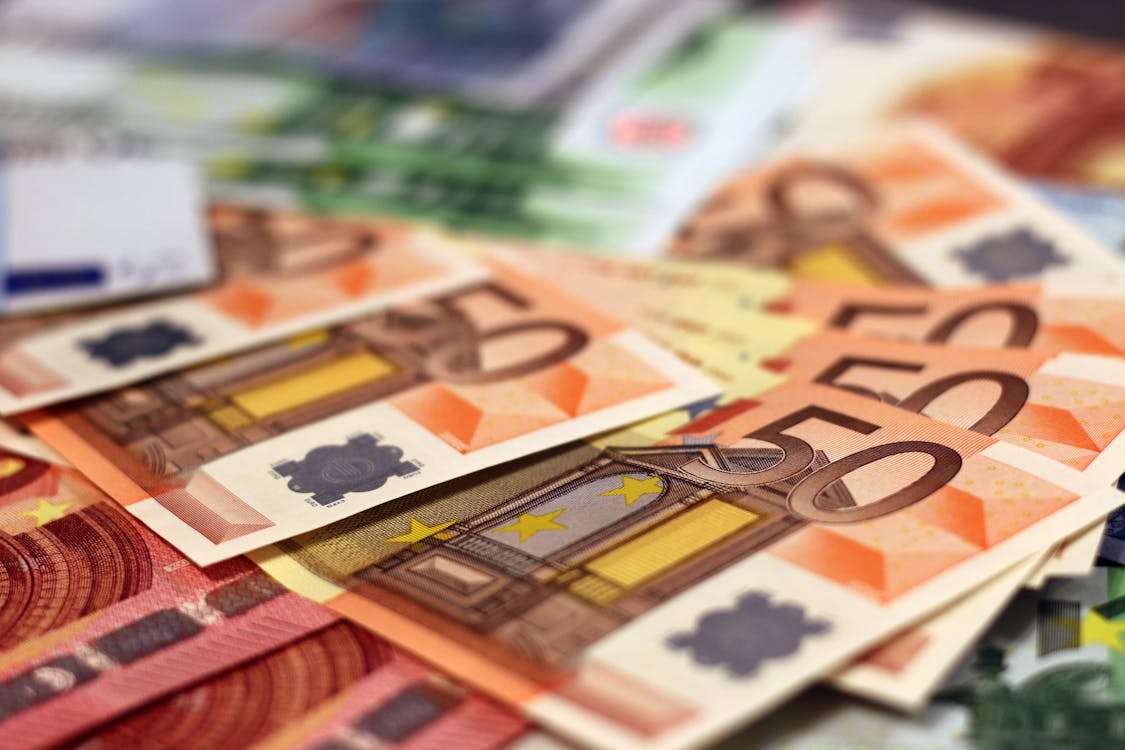 After the plenary session which took place in Strasbourg at the end of February 2024, and the Council's agreement reached on March 12th, 2024, the EU institutions have concocted the priorities and guidelines for the EU Commission about the 2025 multiannual financial framework (MFF).
After the plenary session which took place in Strasbourg at the end of February 2024, and the Council's agreement reached on March 12th, 2024, the EU institutions have concocted the priorities and guidelines for the EU Commission about the 2025 multiannual financial framework (MFF).
Long-term support for Ukraine with the 50 billion euro facility, the start of the Strategic Technologies for Europe Platform (STEP), and flexible changes to tackle current and future challenges were the key priorities to which the EU Parliament and Council agreed upon.
Approved with 499 votes in favor, 67 against, and 31 abstentions, this revision of the MFF enhances the EU budget's capacity to respond more effectively to evolving needs and unforeseen circumstances, especially in addressing migration and external challenges, as well as enhance crisis preparedness and budgetary flexibility. In response to Parliament's requests, the revision introduces a mechanism to address increasing costs associated with the repayment of the NextGenerationEU recovery plan amid rising interest rates.
The proposed resolution underscores the importance of an EU budget that promotes affordable living, societal cohesion, and high-quality public services. It advocates for a budget that not only complements national policies, but also advances the Union's strategic objectives by addressing the diverse needs of EU citizens. Aligned with Parliament’s requests, the revision incorporates a mechanism aimed at addressing the rising expenses associated with repaying the NGEU recovery plan amidst increasing interest rates.
This measure aims to shield EU programs such as Erasmus+ or funding for cross-border transportation and energy infrastructure from reductions and to preserve flexibility options in case costs exceed the initially allocated budget. The new mechanism entails utilizing unutilised funds that would otherwise lapse from the EU budget and establishing a backstop mechanism involving additional contributions from member states if necessary.
Moreover, Parliament has succeeded in ensuring the uninterrupted implementation of the EU4Health program until 2027.
The Ukraine Facility: 50 billion euros for recovery and modernization
The comprehensive aid package, amounting to a substantial 50 billion euros, signifies a pivotal commitment towards bolstering Ukraine's recovery and modernization endeavors over the period spanning from 2024 to 2027. This landmark agreement underscores a profound dedication to addressing Ukraine's pressing needs and propelling the nation forward on its path towards the EU membership.
At its core, this package serves as a lifeline for Ukraine, offering vital support to navigate the challenges wrought by economic instability, infrastructure deficits, and geopolitical tensions. With a strategic focus on fostering sustainable development and economic resilience, the aid package is poised to catalyze transformative change across various sectors, from infrastructure and energy to healthcare and education.
The European Parliament has secured improved terms for budget allocation and financial assistance under the Ukraine Facility. A substantial share, amounting to 33% of the resources, is earmarked as grants, with a minimum of 20% designated for the recovery, reconstruction, and modernization of Ukraine's sub-national entities, including regions, cities, and local communities. Furthermore, 20% of the Facility's investments will be dedicated to green initiatives, while 15% of support will be specifically directed towards SMEs.
The agreement also includes provisions for the potential inclusion of further revenue in the future, with a specific mention, thanks to Parliament’s efforts, that Russia must be “held fully accountable and pay for the massive damage caused by its war of aggression against Ukraine.” The text emphasizes the importance of collaborating with international allies to achieve this goal, including exploring options for utilizing immobilized Russian assets to aid Ukraine's recovery and rebuilding efforts.
Significant progress has ultimately been made in enhancing transparency, including the creation of a web portal for Ukraine's financial operations and the mandatory publication of data on funding recipients exceeding 100,000 euros. The agreement also strengthens anti-corruption measures and takes decisive steps toward removing oligarchs from influence in Ukraine.
The STEP agreement: new technologies for a more competitive EU
Read also: EU ambassadors approve partial negotiating mandate on STEP, platform for strategic technologies
The STEP platform aims to consolidate and bolster Europe's position in vital technological domains, encompassing digital technologies, clean and resource-efficient technologies like net-zero technologies, and biotechnologies. Through the consolidation of various EU programs and funds, the implementation of a “Sovereignty Seal” for relevant projects, and their presentation in a “Sovereignty Portal”, STEP is poised to channel significant investments into these projects, foster innovation, and address critical shortages in labor and skills.
Following the revision of the MFF, STEP will benefit from an additional 1.5 billion euros in funding for the European Defense Fund. This falls considerably short of the 10 billion in additional funding proposed by the Commission and the additional 3 billion reinforcement requested by Parliament.
The MEPs successfully advocated for a two-tier evaluation process, with an interim assessment slated for the end of 2025 to inform decision-making on the post-2027 MFF, and a final evaluation scheduled for 2031, upon the closure of all relevant programs. The interim evaluation will gauge STEP's impact on diminishing the Union's strategic dependencies and should be accompanied by a legislative proposal to amend the Regulation or other legislative initiatives aligned with similar objectives.
Other improvements MEPs managed to obtain include:
- Ensuring alignment between STEP and the Union’s industrial policy, particularly the forthcoming Net-Zero Industry Act and Critical Raw Materials Act;
- Clearly defining the Commission's role in implementing STEP;
- Considering geographical balance and adherence to labor laws in calls for STEP projects;
- Implementing the removal of the Sovereignty Seal if a company relocates the project outside the Union;
- Reporting cohesion projects that fulfill STEP objectives to the Commission and featuring them in the Sovereignty Portal to facilitate funding access;
- Establishing a funding cap of 20% for STEP projects under the European Fund for Regional Development (ERDF) to uphold Cohesion policy.
Read also: EU Parliament calls for more funds for STEP, the platform for strategic technologies





